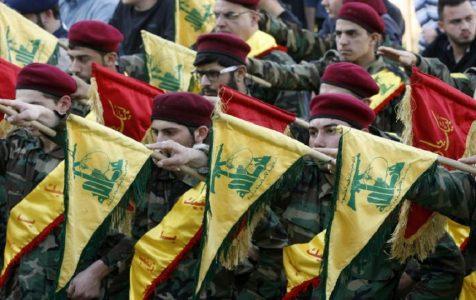
Hezbollah ready to turn Lebanon into a battlefield
The results of this week’s parliamentary elections in Lebanon have no doubt made it difficult to protest Hezbollah’s weapons. Attempts to wrest Shiite seats from the group failed. In fact, it managed to win all Shiite seats in addition to adding to its influence among Lebanon’s Sunni community.
Even though the Future Movement, Hezbollah’s number one opponent, won overall, it still lost seats to Hezbollah, leaving the parliament with a bloc of pro-Hezbollah and pro-Syrian regime members, as well as important Christian powers that have become part of this equation — namely the Aounist movement.
Hezbollah’s weapons are still illegal, as the law does not permit it — or any other party — to be armed in any way, but “the illegality of arms” has become a weak argument since the elections. The Lebanese citizens who voted for Hezbollah, whether they were Shiites, Sunnis or Christians, have decided as a minimum to accept living with these arms.
Here we have the right to be concerned that Hezbollah might aspire to make these arms legal, owing to it having such powerful influence in parliament, and nothing can stop it from attempting to do so. We must prepare ourselves for the possibility of a bill presented to parliament calling for the establishment of a fully independent military reserve force, or an army similar to Iran’s Revolutionary Guards or Iraq’s Popular Mobilization Forces. No one has publicly spoken of an ambition of the kind, but nothing can prevent it.
The direct effect of Hezbollah’s weapons inside Lebanon was seen over the course of two days following the elections, when young supporters rallied across several streets and provoked the residents of a number of districts by chanting sectarian slogans, tearing down banners, and offending many symbols. Hezbollah released a statement saying that the party did not order these rallies or their actions.
Here lies the arms paradox. Those young men felt they could do what they did: What happened was not a coincidence and it was not spontaneous. The rallies, in which thousands of Hezbollah and Amal Movement supporters took part, possibly started as a coincidence or were locally arranged. But it is obvious that they pleased high-level leaders, who could have withdrawn their supporters from the streets by making one phone call — as we have learned from previous events.
Nevertheless, those leaders did not do so until things almost got out of hand, with political messages aimed at several targets.
The large number of rallying young bikers, as well as the rallies’ two-day duration, suggest there is a story behind all this. Those behind the teenagers, who were thrilled by their MPs’ victory, loved what the Hezbollah leader said, which can be summarized as “we control the country.”
Intimidating the capital’s residents and replanting sectarian division are among the obvious goals of the rallies, which were an immediate outcome of the election results. But there are far more important goals than reminding Lebanon of Hezbollah’s armed invasion of Beirut 10 years ago (on May 7, 2008).
Lebanon’s return to regional conflicts and the escalation of Israeli-Iranian tensions, which has turned into a military confrontation in the past two days, are factors that will force Lebanon to comply with the requirements of an external conflict that has strong local allies: Hezbollah and its cohorts, who have become a broad front.
Once the battle begins, these allies inside Lebanon do not want their military action to be disrupted — be it in politics, the media or on the streets. This is because they understand that internal division at this stage is deeper than it was during the war of July 2006. Therefore they will compel the Lebanese people who do not share their desire to engage in a new war to be silent; even by force. This was precisely the goal of the biker rallies that took place following the elections.
Hezbollah’s supporters and allies continue to believe the party’s slogans that aim to drive Lebanon into an Iranian-Israeli confrontation that will allegedly liberate Jerusalem. However, these slogans have been raising questions for the Lebanese communities that are afraid of the death and destruction war would bring.
The promised regional war will result in further internal division for Lebanon and will further weaken the state. In other words, all those of us who do not wish for Lebanon to become a battlefield can do is be silent and watch as our futures get robbed.
Source: Arab News





